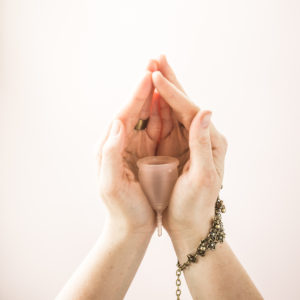Why PMS is good for you, as seen on Period Pain Free

It’s a rite of passage, right?
My mother suffered through cramps and bloating, your aunt got headaches and back pain, your sister’s cramps were so bad she had to miss her soccer games once a month, your best friend gets a little “PMS-y” two days before her period and everyone knows to ignore her attitude until it blows over.
Acne…food cravings…mood swings…breast tenderness…low sex drive…hair loss…
Sound familiar?
PMS is just something all women suffer through. It’s “normal”, and not something that needs to be treated or fixed. And if it’s really bad, and you to go to your primary care provider for treatment, chances are you were or would be put on the pill as the best and only long-term solution for all of your PMS symptoms.
I’m here to tell you it doesn’t have to be this way.
As a naturopathic doctor, I do not view PMS as something we all just have to suck up deal with until menopause.
I struggled with PMS for most of my young adult life. I got acne for the first time when I was in my early 20s, I was moody and distant from my partner, disinterested in joy and life and sex. That set me on the path to figure out why women are just expected to feel this way and find the solution that I knew was out there.
Hormone and mood imbalances don’t have to be the norm for women, PMS can be treated (and not just with the pill). That is why I have helped not only myself, but over 2000 women with their hormonal and mood imbalances to live happier, healthier, less-moody lives.
Let’s talk hormones.
Estrogen is an important hormone. It is an integral part of the female reproductive system. Estrogen should dip twice in a woman’s cycle – right after ovulation and right before you get your period.
Recent research has found that estrogen is not only important to your reproductive system, it is also linked to serotonin, the neurotransmitter that makes us feel happy. So when estrogen drops before your period, so does your mood.
I have seen thousands of women come through my office who tell me that they cannot escape the dark cloud that looms over them a couple days before their period. They can’t stand the people at work, their partners steer clear, they snap at their kids.
It’s time to change the narrative. Being a woman does not automatically mean you also have to suffer once a month.
This is why PMS is good for you, it is your body giving you the warning signs that something is out of balance. There is still time to get educated, learn about treatment options that aren’t pharmaceuticals so you (and your friends, and your mothers, and your daughters) can have pain-free, balanced periods…from your first to your last.
Like one of my patients, who could not believe when she got her period. It “snuck up” on her because she didn’t experience the 4 days of turmoil, pain, bloating and breast tenderness that she came to associate with getting her period. Once her hormones were balanced, she experienced her first every pain-free period.
Next time you experience PMS, write it down. Write down when it is happening, how you are feeling, how long it lasts. This is important information. It is your body screaming at you that something is out of whack and needs to be balanced.
There is a better way to treat PMS. You deserve a better doctor who does more testing, more research and has real, helpful solutions (not switching you from one pill to the next).
I do functional testing on all of my patients who are experiencing the signs and symptoms of hormonal and mood imbalances so I can treat the underlying cause and watch the numbers improve as my patients get better.
This is not a guessing game; this is not in your head. There is something out of balance and it can be fixed.
I even developed an at home online program called The Hormone Code to help women take control of their own hormones and mood through education, lifestyle, and easy to follow protocols.
You can have balanced hormones. You can get rid of that feeling of overwhelm that consumes you, especially before your period. You deserve pain-free periods.
by Dr. Jordin Wiggins, ND
Leave a Reply